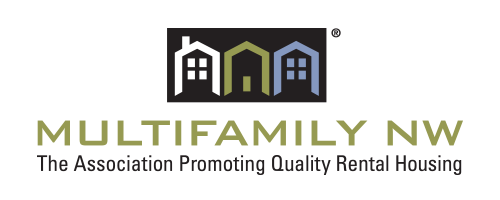WA State House Bill 1217 - Limits to Rent Increases, Changes to Notice Requirements & Tenancy Rules
The Washington Legislature has passed House Bill 1217 (HB 1217) which was signed by the Governor on Wednesday, May 7, 2025, and is effective immediately.
This bill limits rent and fee increases, requiring notice of rent and fee increases, limits fees and deposits, establishes a landlord resource center and associated services, authorizes tenant lease termination, creates parity between lease types, and provides for attorney general enforcement.
Rent Increase Limits
Except if allowed by an exemption, a Housing Provider may not:
Increase the rent for any type of tenancy, regardless of whether it is month-to-month or for any fixed term, during the first 12 months after the tenancy begins and during any 12-month period of the tenancy, in an amount greater than 7% plus the CPI, or 10%, whichever is less.
Beginning June 1, 2025, and annually thereafter, the department of commerce will calculate the maximum annual rent increase percentage allowed for the following calendar year and publish the information on their website and in a press release.
Tenant Remedies for Unlawful Rent Increases
Opportunity to Cure Unlawful Increase
If a Housing Provider increases a Renter's rent by more than the maximum annual rent increase limit, and the increase is not authorized by an exemption, the Renter must provide the Housing Provider with an opportunity to cure the unlawful rent increase. The Renter must provide the Housing Provider with a written demand to reduce the increase to an amount that complies with the maximum annual rent increase limit.
Termination of Rental Agreement
In addition to any other remedies or relief available to the Renter, a Renter may terminate their rental agreement at any time before the unlawful rent increase takes effect.
- The Renter must provide the Housing Provider with at least 20 days' written notice before terminating the rental agreement;
- The Renter must pay the full amount of rent for the month in which the Renter vacates the unit; and
- A Housing Provider cannot charge a Renter any fines or fees for terminating a rental agreement due to an unlawful rent increase, including a lease break fee and/or repayment of concessions.
Parity Between Fixed Term and Month-to-Month Tenancies
A Housing Provider may not include terms or payment or other material conditions in the rental agreement that are more burdensome to a tenant for a month-to-month tenancy versus a fixed term tenancy.
A Housing Provider cannot charge a Renter more than a 5% difference in rent for a month-to-month tenancy than for a fixed term tenancy. The 5% difference between fixed term and month-to-month tenancies cannot exceed the maximum annual rent increase limit.
Enforcement and Penalties
A Renter or the attorney general may bring a court action against the Housing Provider for violations related to the amount of the rent increase and timing, exemptions to the rent increase, the form of the rent increase and/or service of the rent increase notice.
A court shall award the following damages, costs, and the attorneys' fees if the court finds that the Housing Provider violated any of the provisions in HB 1217:
- Any excess rent, fees, or costs that the tenant paid;
- Up to 3 months of any unlawful rent, fees or costs that the Housing Provider charged; and
- Reasonable attorneys' fees and costs.
Regardless of whether the Renter offers the Housing Provider an opportunity to cure any rent increase violations, the attorney general may bring an action against the Housing Provider for any rent increase violations. The attorney general may issue written civil investigative demands for:
- Pertinent documents;
- Answers to written interrogatories; and/or
- Oral testimony
The attorney general may recover civil penalties up to $7,500 for each violation, in addition to other permitted remedies.
A Housing Provider may not report a Renter to a tenant screening service provider for failure to pay any portion of the rent that was unlawfully increased.
Exemptions to Rent Increase Limits
A Housing Provider may only increase rent by an amount greater than the maximum annual rent increase percentage if authorized by one of the following exemptions and the Housing Provider includes supporting facts for any exemption claimed in the rent increase.
Rent increases are not limited for any of the following exempt types of tenancies:
- A tenancy for which the first certificate of occupancy was issued within 12 years of the notice of rent increase;
- A tenancy for a dwelling unit owned by:
-
- Public housing authority
- Public development authority; or
- Nonprofit organization where maximum rents are regulated by other laws or local, state, or federal affordable housing program requirements.
- A tenancy in a qualified low-income housing development where property is owned by public housing authority, public development authority, or nonprofit where maximum rents are regulated by other laws or local, state, or federal affordable housing program requirements.
- A tenancy in a qualified low-income housing development which was allocated federal low-income housing tax credits authorized under the low income housing credit (26 U.S.C. §42) or successor statute, by the Washington state housing finance commission or successor state-authorized tax credit allocating agency, so long as there is an enforceable regulatory agreement with the Washington state housing finance commission under the low-income housing tax credit program.
- A tenancy in a dwelling unit where tenant shares a bathroom or kitchen facility with the owner who resides on the property and the property is the owner's principal place of residence.
- A tenancy in a single-family owner-occupied residence, including a residence where owner rents no more than two units/bedrooms, including an attached or detached accessory dwelling unit.
- A tenancy in a duplex, triplex, or fourplex where the owner resides in one unit as their principal residence.
The above owner-occupied exemptions do not apply if the owner is a real estate investment trust (REIT), a corporation, or a limited liability company in which at least one member is a corporation.
Required Rent Increase Notice
Housing Providers must use a rent increase notice that is in substantially the same format as the notice provided in HB 1217.
The format required by HB 1217 does not apply if the rental agreement governs a subsidized tenancy. You must use the required format for Renters with a Section 8 portable voucher or similar portable assistance administered through a housing authority or other state or local agency and affordable housing where maximum unit rents are limited by area median income levels and a Renter's base rent does not change as the Renter's income does.
Proper Service of Rent Increase Notice
A Housing Provider must attempt personal service of a rent increase notice. If personal service is not available, a Housing Provider must post, and first class mail the rent increase notice from the county in which the property sits. An affidavit of service should be completed and kept on file demonstrating how the rent increase notice was served.
Rent Increase Notice Timing Under New Law
If a lease has a fixed term that ends July 6, 2025, through August 4, 2025, a Housing Provider may provide 60 days' notice of the rent increase.
If a lease has a fixed term that ends August 5, 2025, or after, a Housing Provider must provide 90 days' notice of the rent increase.
New Online Landlord Resource Center
The Washington Department of Commerce will create an online landlord resource center to distribute information to Housing Providers about available programs, associated services, and resources, including the landlord mitigation program and low-income residential weatherization program.
Upcoming Webinars
Thursday, May 22, 2025 - Washington It's the Law - HB 1217 with Brad Kraus from Warren Allen, LLP 10:00am-11:00am REGISTER HERE
Thursday, May 29, 2025 - HB 1217 Overview with Lindsey Adegbite from Andor Law
9:00am-10:30am REGISTER HERE

